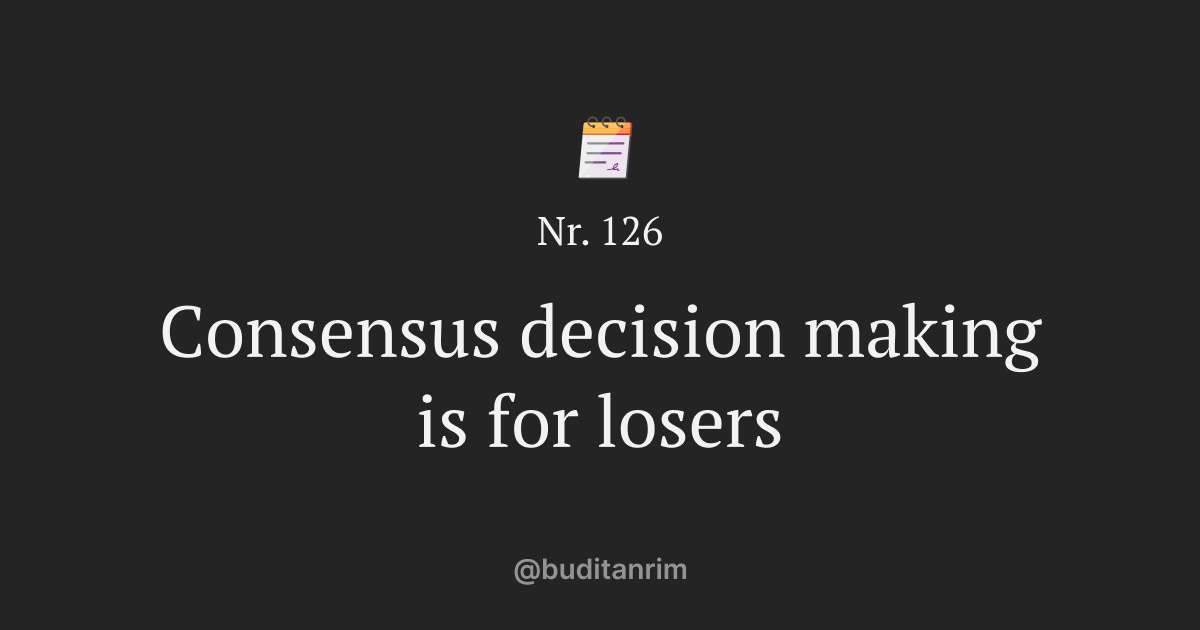Consensus decision-making is for amateurs — Nr. 126
Consensus decision-making sounds nice. But it is harmful for product development.
Some people are afraid to make decisions. That may sound silly. But it’s real. They will ask people, “What would you do if you were me?” Then they decide based on that. One of the leaders I worked with loved the idea of a committee. A group of people will make a product decision together. On the surface, it sounds nice because of the democratic spirit. But it is harmful to product development.
Consensus decision-making is slow. It takes forever to decide something because no one can make the final call until most people agree. Slow decision-making hinders you from making progress in product development.
At Apple, important decisions happen top-down. You have competent Directors or Managers who will give you a green light or not. That’s better than waiting weeks or months to make everyone agree with the direction. (source)
Consensus decision-making is low quality. It may feel safe because there is no one to blame. It’s a group of people making decisions together. But this is bad because no one is accountable, and no one is thinking hard enough to make sure they’re making a good decision.
At Amazon, one competent leader is responsible for making the final call. This fosters creativity and risk-taking. You can read it more in their book. Do you want a group of strangers to control the airplane or prefer a professional pilot to take the driver's seat?
Consensus decision-making is for amateurs. Consensus decision-making is stupid because people don’t think critically. They go with the majority of the group. Professionals don’t outsource decision-making they’re responsible for.
You’ll notice this everywhere.
Maybe it’s in your company. People think it’s necessary to convince everyone to decide on something. But they don’t realize it’s a dysfunction in their company.
This means three things:
If you’re the decision maker, listen to people’s input. But you should synthesize them and make the best possible decision. Remember, some decisions are easily reversible, and others are irreversible, so allocate your energy wisely.
If you’re not the decision maker, voice your opinion and elaborate on your reasoning. But remember, you are not the decision-maker. I know this may sound disempowering, but you want to move fast.
If you’re a leader, make the decision-making mechanism clear.
PS. If the decision-makers have a low agency mindset, they will outsource their decision-making. Read about the high-agency mindset.

